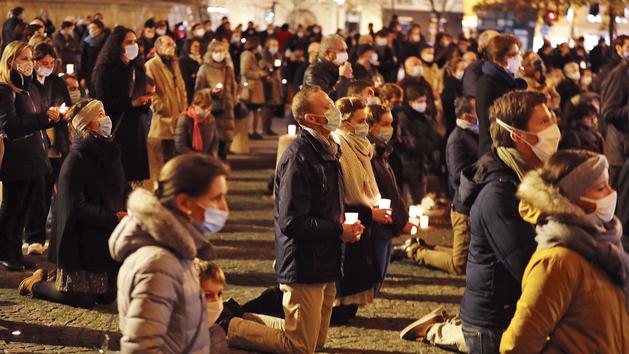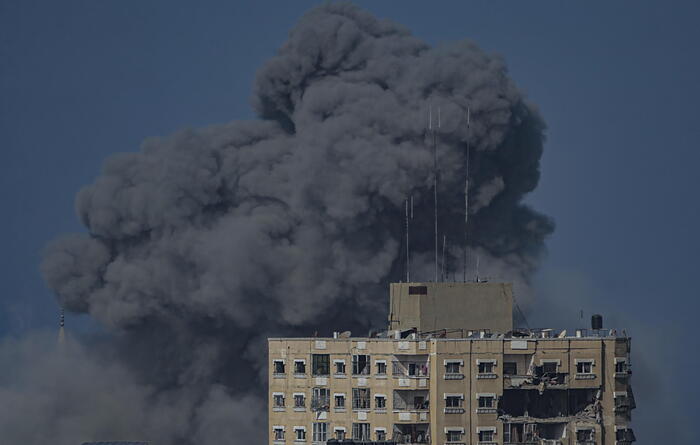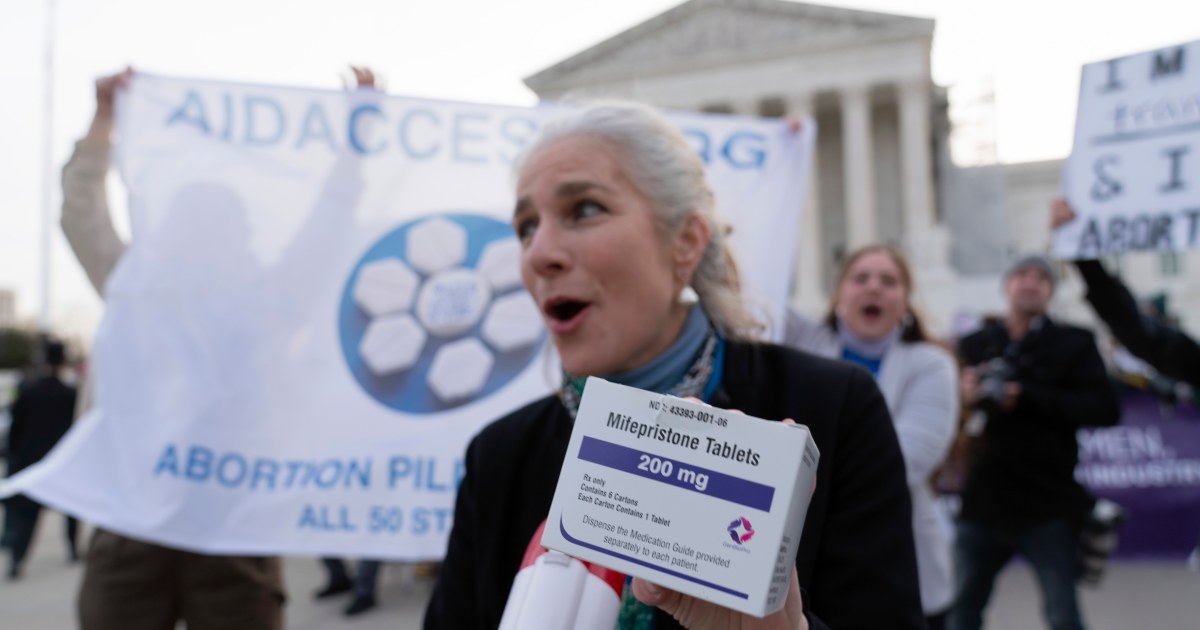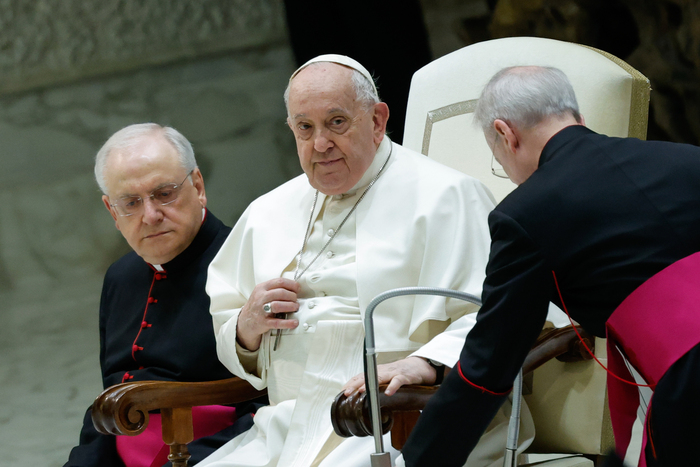About 400 people gathered, Sunday, at the end of the afternoon, on the Place Saint-Sulpice, in Paris, to again ask to lift the ban on masses in public.
The "demonstration", which brought together mostly Catholics in their thirties, went off without a hitch, punctuated by several speeches, including that of the philosopher Thibaud Collin, of two dozen rosaries recited on their knees for part of the event. assistance, a religious song, all under the surveillance of a light police device.
Léonie, 24, was present:
“I am here to ask the government to reopen the churches and to be able to let us go to mass because it is an important point for the life of a Catholic.
We need this real presence and our community life to be able to live our faith fully.
And if we have to be in front of churches to claim it because we are not heard, then we do it, many of us, to have more weight. "
A gathering of the same type was banned last week by the prefect of police, Didier Lallement.
This time again, the senior official tried to prevent it on Saturday.
But he was countered at the last minute by the administrative court.
How had he managed to ban it eight days earlier?
The reason officially invoked was the non-respect of "sanitary measures" during a similar demonstration, in the same place, on November 13.
But not only:
"the police services",
according to the letter of refusal, had
"noticed that several people on their knees prayed on the public highway and that others sang religious songs"
.
What became, according to the prefecture,
"an event of the cult type"
and no longer
"a demonstration of a protest nature"
.
Faced with
"the risk"
that the demonstration planned for last week would also turn into an event
"of a religious type"
, the police chief had therefore banned it.
Inglorious had been the tactic used by the Paris police headquarters to prevent any appeal from the organizers: initially, it had submitted the authorization of a Sunday rally to the following conditions:
"no prayers, no songs, no mass and absence of visible religious symbols ”
.
The organizers entrusted Me Henri de Beauregard with the task of filing an interim relief to review these conditions.
A hearing at the administrative tribunal was set for Saturday but, during the night, the Prefecture returned to the conditions to reduce them to one:
"no street mass"
.
As no mass was planned, the organizers therefore canceled in good faith their summary freedom and signed, as is, the request for a Sunday demonstration at the prefecture.
They thought they would succeed without difficulty since they respected the ban on mass demanded by the prefect.
It was without counting on a formidable administrative string: the Prefecture waited until the last moment, Saturday afternoon, to prohibit, this time purely and simply, the holding of the demonstration, place Saint-Sulpice, thus preventing any delay of legal recourse. from the organizers who found themselves faced with a fait accompli.
"We were treated unfairly,"
commented Jean-Benoît Harel, 24, one of the organizers.
To read also:
"Freedom of worship is not a categorial demand"
Why did the Paris police prefect fail this weekend?
While the organizers' request had been filed in the prefecture, on Tuesday, for a demonstration this Sunday, Didier Lallement replied to them by letter on Saturday to tell them that he had decided
"not to ban"
the gathering but posed two conditions: strict compliance with sanitary instructions and, once again, the absence of "street prayers".
Saturday, the organizers and Me Henri de Beauregard filed an interim relief at the administrative court.
The judge examined it urgently and finally authorized the demonstration because
"nothing in French law provides for subjecting a gathering to the absence of prayer",
comments the lawyer.
In fact, in French law, nothing prohibits prayer in the public space, especially since the notion of
“prayer”
is foreign to the law.
She only knows of demonstrations and
"gatherings of people"
like that of Saint-Sulpice (which can only be prohibited because of risks to public order) and
traditional
"processions"
, corresponding to local customs (pardons , celebrates God…).
Hardening of the authorities
The hardening of the authorities was justified by the fact that the only demonstrations that could be authorized under the confinement regime by the ministerial decree would be
“protest demonstrations”
, to the exclusion of
“religious”
demonstrations
.
However, the term does not appear anywhere in the decree ...
The example of the ban on demonstrations for Mass in Clermont-Ferrand this Sunday clearly shows these legal ambiguities, even if there were around forty demonstrations authorized in France this weekend.
In the capital of Puy-de-Dôme, the organizers nevertheless filed two successive appeals to the administrative court because the prefect did not want a demonstration
"of a religious nature"
.
The first appeal proved the prefect wrong, because he had relied on a religious argument.
"The judge recalled that it was not possible, in principle, to prohibit a religious event"
explains Me Hugues de Lacoste Lareymondie, who defended the case.
But, as soon as the decision was rendered, the prefect reiterated his ban, this time on the basis of health reasons.
And, this time, the administrative judge agreed with him.
The demonstration could not take place.







